Photographers Capture Spectacular ‘Ring of Fire’ Eclipse
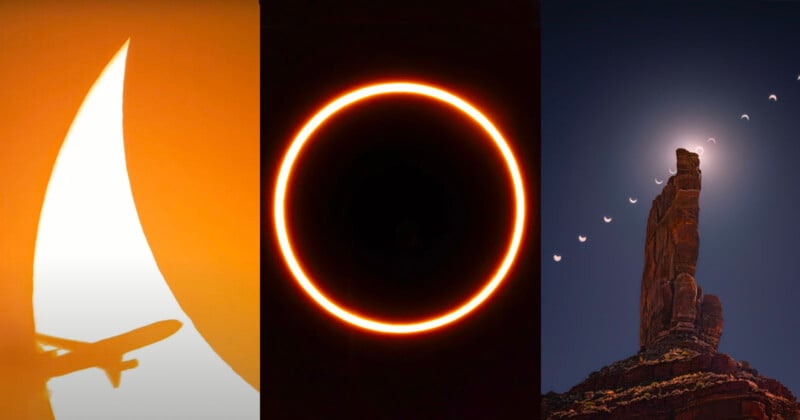
Photographers were out in force across the United States this past weekend to capture a rare phenomenon known as an annular solar eclipse which momentarily created a “ring of fire” in the sky.
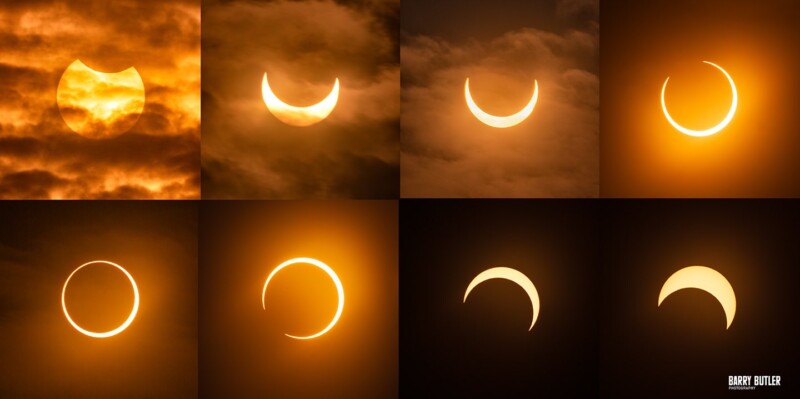
Barry Butler, who is more usually found photographing Chicago, traveled to Oregon with his son to capture a series of photos that beautifully show how the eclipse evolved.
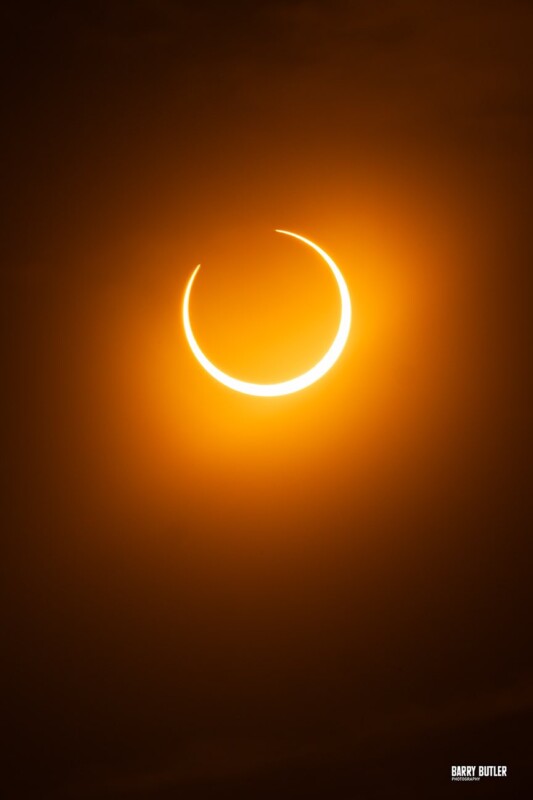
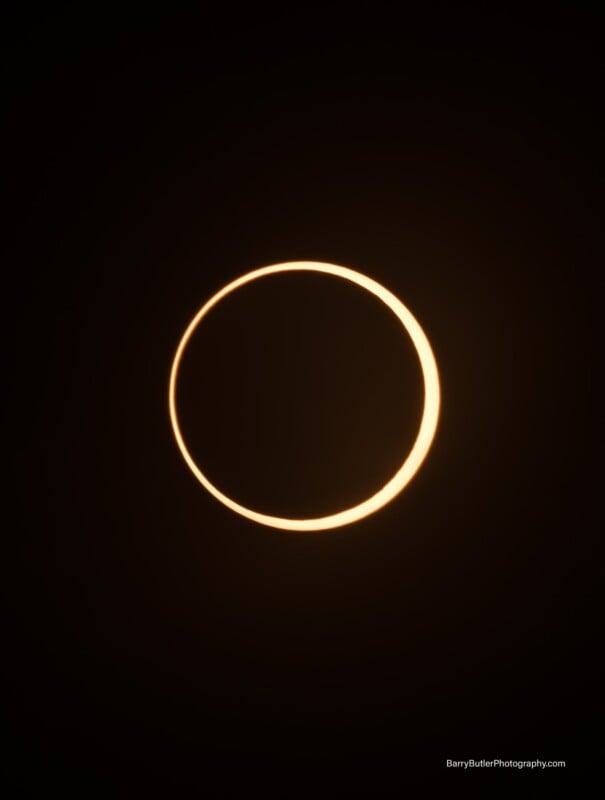
Meanwhile, a PetaPixel reader got a “one in a million” eclipse shot when an airplane flew threw his frame as the eclipse was underway.

“I’ve tried for years to get the perfect shot of a jet flying in front of the Moon or the Sun. I never dreamed that the first time I’d get a decent shot it would be in front of both the Sun AND the Moon,” says Mike Newbry who used a Nikon P1000 to captured the coveted shot.
Photographer Eric Smith says that he prepped for the annular solar eclipse for six months and drove out to Sandia Crest in New Mexico which is 10,000 feet above sea level to record the rare celestial happening.
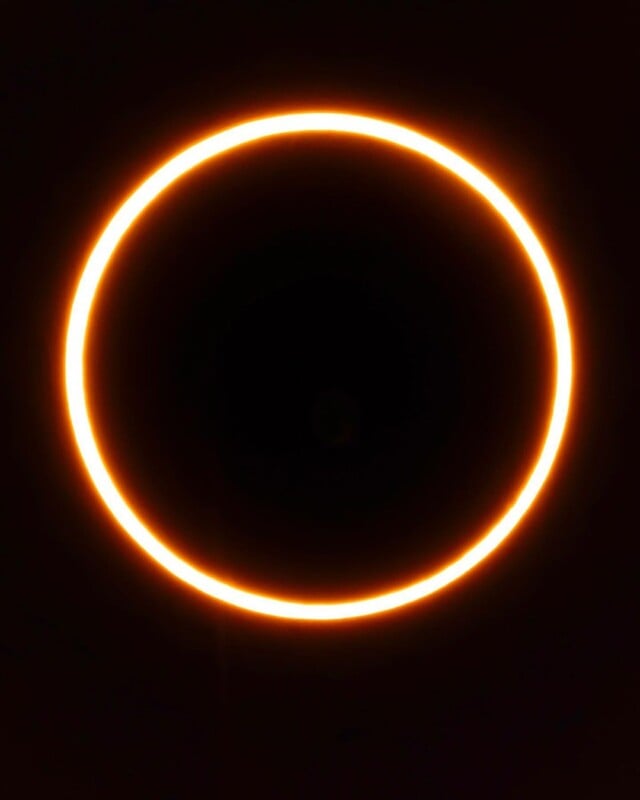
Photographer Satoru Murata says he “screwed up the framing a bit” on his stunning composite consisting of 19 images showing the Sun passing behind Castle Butte in the Valley of the Gods in Utah.
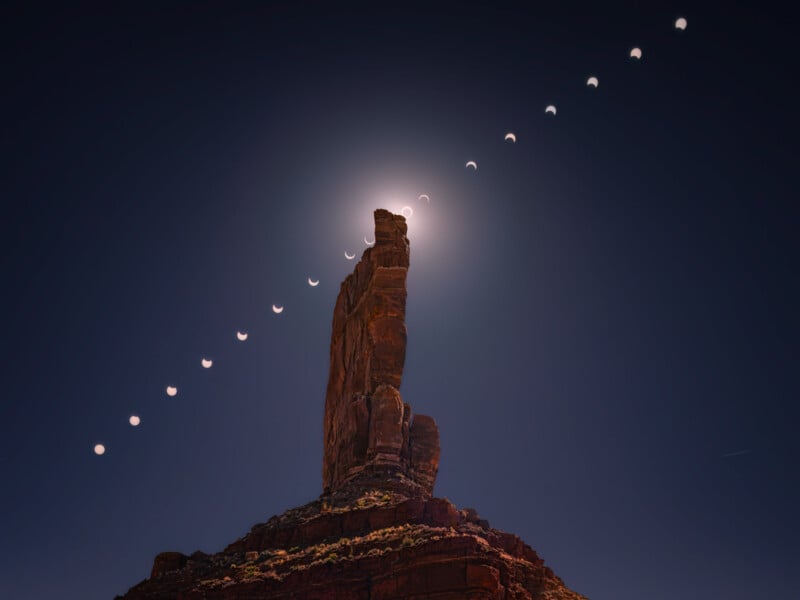
“Namely, [I] pointed too low and so missed the last two images at the upper right. Also, the Sun went behind the tower for much of the totality,” he says on his Instagram page.
“However, the silver lining is that I was able to use the shot taken while the Sun was behind the tower for the sky background; all my other skies had tons of flare from the bright sun, so it kinda worked out.”
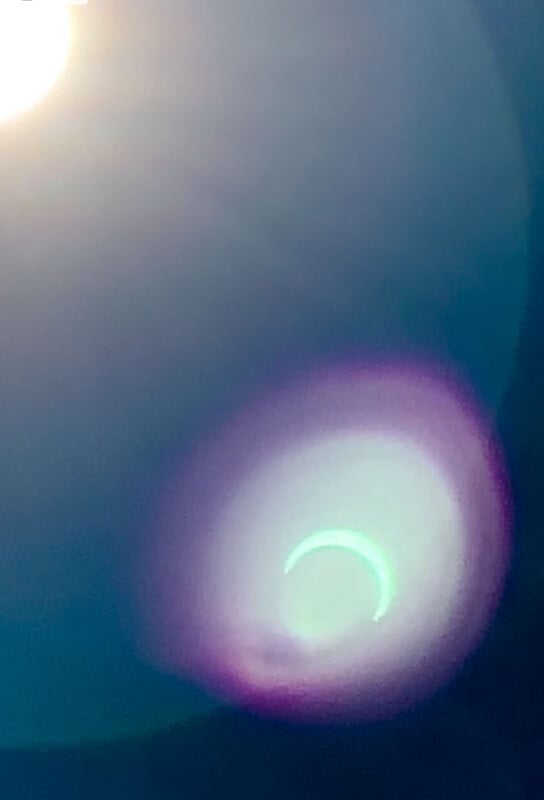
PetaPixel reader George Michael Polillo shot this image with an iPhone 14 Pro Max using the 15x digital zoom while recording short 4K 30 frames per second video clips. The eclipse is framed within the “notoriously prevalent” lens flair on the iPhone; he calls it a “very surprising and cool result.”
“I don’t know why the eclipse was carried so precisely in the flare,” he says. “[It’s] not the James Webb, but now I may have a pocket solar telescope when the next annular solar eclipse passes over this area in 375 years!”
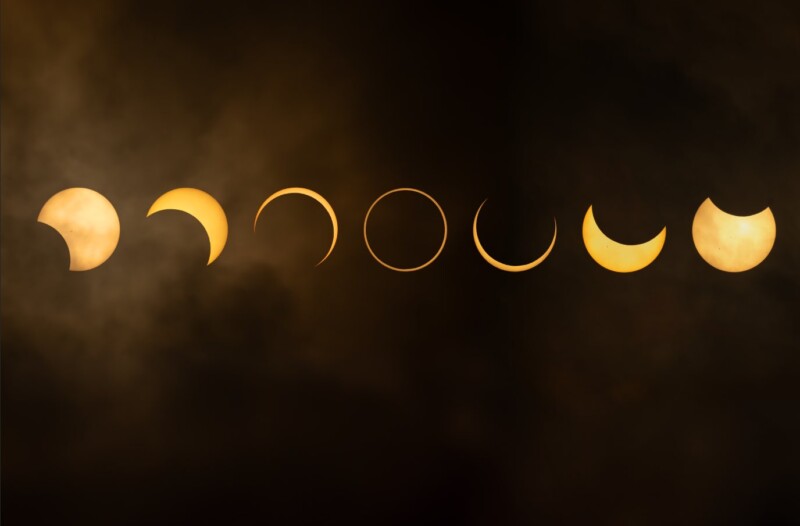
The clouds cleared in Corpus Christi, Texas just in time for Coty Mottice to capture this sequence showing the Moon’s transit which the photographer is selling as a print.
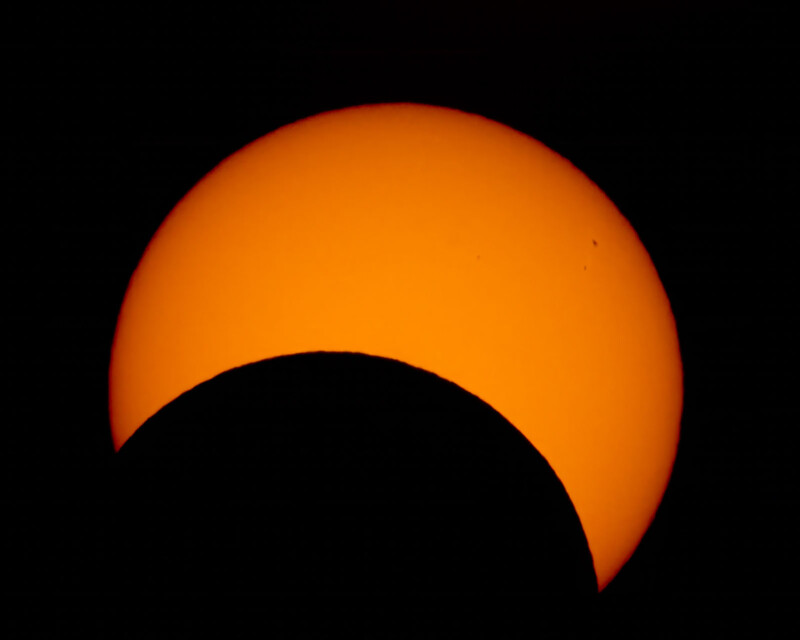
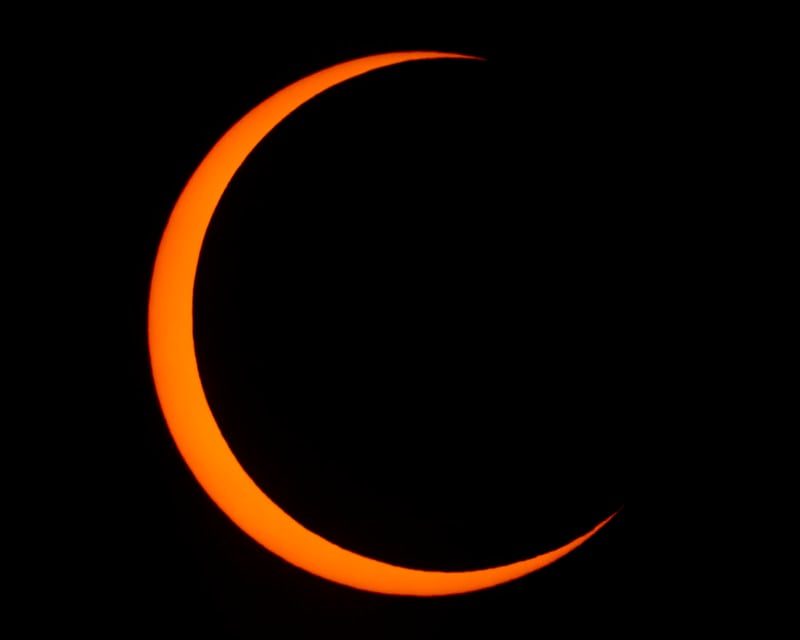
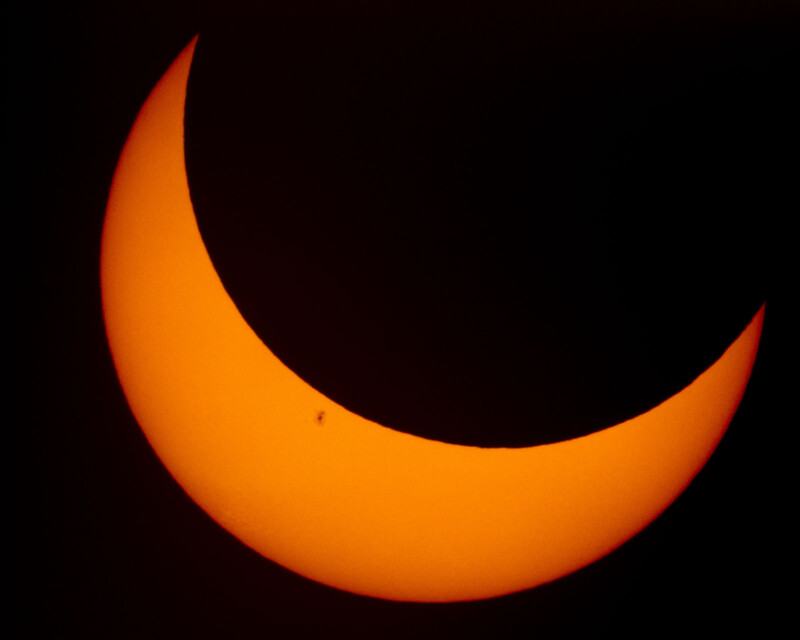
Dan Danbom was in the Monterey Peninsula, California where there was only a partial eclipse and no ring of fire; it was also cloudy but he still made do and got an interesting image with a Canon 100-400mm L lens mounted to a Canon 7D II.
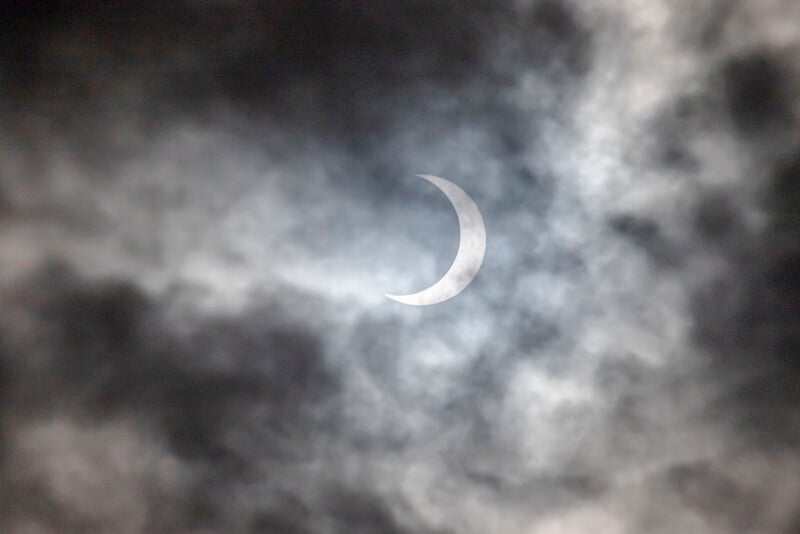
Last but by no means least, celebrated backyard astrophotographer Andrew McCarthy was of course shooting the rare ring of fire event.
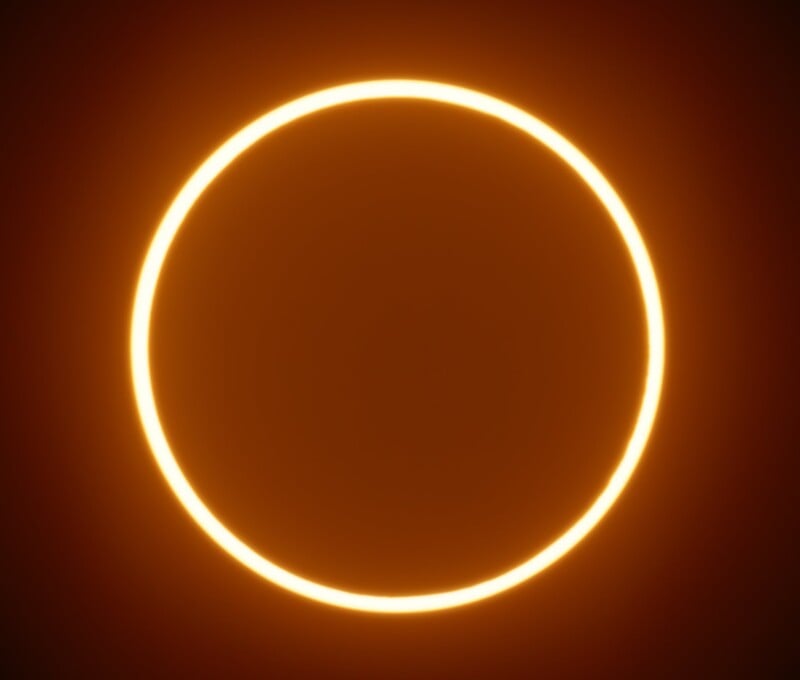
I saw my first annular eclipse today! Stay tuned: more photos coming! pic.twitter.com/w3uWfHUdal
— Andrew McCarthy (@AJamesMcCarthy) October 14, 2023
McCarthy used five different telescopes to shoot the rare event and while the above picture is not his final image, this is what he got out of his eight-inch telescope with a white light filter.
Update 19/16: Photographer credits updated.